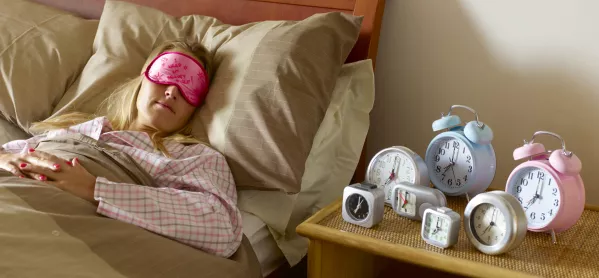When I was teaching in London, nothing used to irritate me more than someone sauntering into a meeting 20 minutes late, holding a steaming cup of coffee clearly purchased on the way, and casually explaining that the Central Line was “a nightmare this morning”.
I am at the other end of the spectrum.
I live in fear of being late and can often be found idling about airports and train stations as a result (no one can say I don’t know how to have a good time).
Quick read: School leaders, sort out your routines
Quick listen: The truth about mental health in schools
Want to know more? Women’s toilet needs should not be ignored by schools
But should this attitude to timekeeping be applied in school? Or is being early as rude as being late?
There are certain situations where turning up early is beneficial, such as at an open evening or when arriving at your lesson before the children.
But I have always found it stressful when people turn up early to a meeting with me, even though I know they will be fine sitting in reception.
Etiquette expert Maralee McKee advises being no more than five minutes early. “Once you arrive, the person you’ll be meeting with will feel the need (and even the pressure) to stop what they are doing and pay attention to you,” she says.
A few extra minutes
If you are meeting colleagues within your school, it is more acceptable to turn up early; sometimes things get so busy that you have to seize any opportunity to grab a few extra minutes. But try not to show up so early that it looks like you have nothing to do.
On the flip side, your colleagues are more likely to be understanding if you get caught up with an incident that delays you, as you can never predict what is going to happen in a school.
In general, I’d say it’s always better to be too early than too late. Habitual lateness can be interpreted as rudeness: it’s basically telling someone that they are not worthy of your time.
It can also send out other negative messages, perhaps suggesting that you aren’t able to prioritise or to say no.
As a teacher, it can feel like you’re juggling a million things at once, and there may be days where turning up at all is an achievement, regardless of timekeeping.
But, where possible, being organised and punctual is not only more considerate and productive but will ultimately lower your stress levels, too.
Gemma Corby is a former special educational needs and disability coordinator (Sendco) and freelance writer. She tweets @gemma_e_corby





